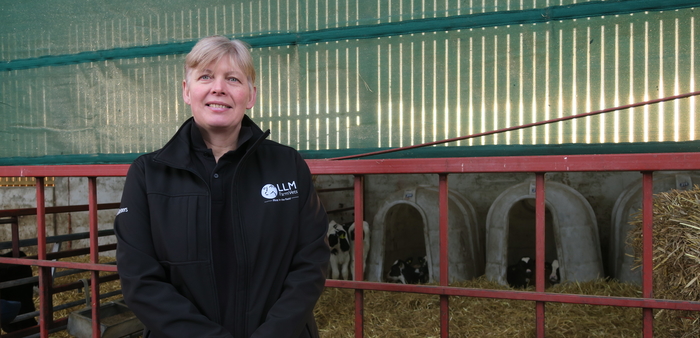VetTech services are to be expanded across VetPartners’ 28 farm practices so all farm clients will have access to the service by the end of 2020.
Speaking at Dairy Tech, Ian Cure, Farm Director at VetPartners, explained why the group has decided to roll out VetTech teams across all farm practices.
“Farm veterinary services are becoming increasingly focused on a preventative approach,” said Ian.
“Vets need to fully understand farm businesses and work with farmers to identify improvements to animal health and welfare that can boost productivity,” he added.
“By supporting with more routine tasks, such as disbudding, selective dry cow therapy and transition checks, VetTechs spend more time on farms than their vet colleagues. This means they’re regularly speaking to farmers, which helps with building a full picture of what’s going on.
“VetTechs then work closely with vets, to relay information enabling the vet to be fully informed when they’re on farm.”
Natalie Parker, VetTech development coordinator at LLM farm vets, reiterated how the service relieves pressure on vets while ensuring routine procedures are carried out as effectively as possible.
“At the moment, with farm vet recruitment being an industry wide challenge, there’s a fair amount of pressure on vets. The VetTech service can take day-to-day tasks, like disbudding, away from vets, leaving them with more time to focus on consultations and health plans,” she said.
“From a farmer’s perspective, there’s peace of mind that tasks are being completed to the highest possible standard, which can improve health and productivity.
“For example, when administering vaccines to youngstock we make sure that we correctly administer the right vaccine, which has been stored at the right temperature, at the right time. This gives the medication every chance to be as effective as possible, and farmers using this service have seen big improvements in the health and growth of calves.
“We can also remove the need for farmers to employ extra staff for a day when they’ve got extra things to do, as we come to carry out just the task required, fitting it around daily farm routines to minimise any extra stress on the animals.”
LLM Farm vets were one of the first practices to introduce VetTech service six years ago and the VetPartners group will draw on the team’s experience while rolling out the service across practices.
“We’re supporting the expansion of the VetTech service nationwide by training new VetTechs for other practices within the wider VetPartners group,” said Natalie.
“At the moment, new VetTechs come and work alongside us for at least two weeks, to get a full understanding of the services offered and to be in a position to take what they learn and develop services in their own area. With time, we expect this will become more formalised as the expansion of services progresses.”
Natalie concluded that VetTech services will need to prioritise according to which services are of most demand in their area – but the core principle of offering support to farmers and vets by ensuring tasks are carried out to the highest possible standard and providing a fresh perspective when out on-farm should be the same everywhere.


